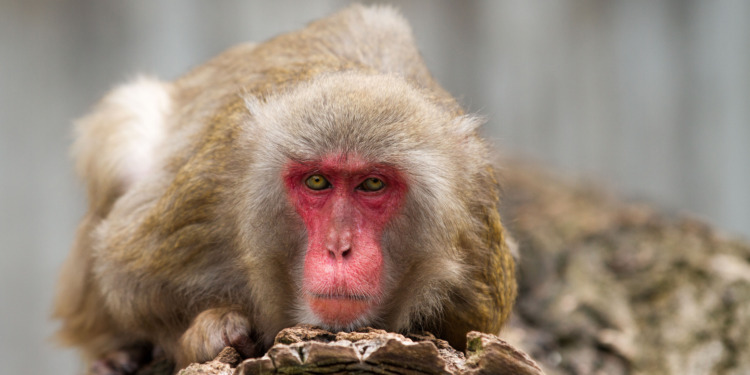In Yamaguchi, a city in Western Japan, Macaque monkeys aren’t an uncommon sight. As the city’s agricultural department official explains, “[a]ll of Yamaguchi city is surrounded by mountains and it’s not rare to see monkeys.”
in snow-covered Mutsu, Japan, group of Japanese macaques avoided the snow by using overhead wires like a tightrope to seemingly get to a forest pic.twitter.com/zaEgjI3S2F
— Science girl (@gunsnrosesgirl3) December 2, 2020
So far, the Macaques have mostly been seen wandering around, eating crops and entering homes. While some (individual) attacks have been observed in the past, things began turning unusual when the attacks started happening one after another in early July, one of which resulted in an infant being badly scratched.
“I was vacuuming when I heard my child crying, so I turned around and saw the monkey had grabbed her by the legs while she was playing on the floor,” the infant’s mother told Japanese media. “It looked like it was trying to drag her outside.”
Since then, 42 people in Yamaguchi have been reported injured as a result of the attacks, believed to have been carried out by the local Japanese macaque monkeys.
Marauding monkeys injure 42 in Japanese city.
Yamaguchi city authorities say they are considering using tranquiliser guns to confront the monkeys. Macaques are a common sight across much of Japan but the spate of recent attacks has been unusualhttps://t.co/COokEazN6Q pic.twitter.com/UsFgi6xW68
— AFP News Agency (@AFP) July 25, 2022
“Initially only children and women were attacked. Recently elderly people and adult men have been targeted too,” explains the agricultural department official.
According to local media reports, the injuries ranged from slight lacerations and scratches to bites on legs, hands, necks, and even stomachs, with residents sharing stories of monkeys entering their homes through windows or by sliding screen doors.
In one case, a monkey had entered a kindergarten classroom and attacked, lacerating a four-year-old girl while in another, a young girl, also four years old, was lacerated after her family apartment had been broken into.
“I heard crying coming from the ground floor, so I hurried down. Then I saw a monkey hunching over my child,” said one of the fathers.
Related Articles: Another Species Now Officially Extinct | Conservation Through Public Health: Helping Gorillas to Co-exist With Humans
As AFP points out, the local authorities are still unsure whether the attacks were carried out by multiple monkeys or a “single aggressive individual.”
They have been attempting to capture the culprit(s) since the attacks began on July 8, albeit unsuccessfully. As none of the traps they had set up worked, on July 25 the Japanese police started using tranquiliser guns to confront the attacker(s).
How come and why now?
Considered a vulnerable species until the early 20th century, the Japanese macaque monkeys, whose populations have recovered in the meanwhile, are now listed as species of “Least Concern” by the International Union for Conservation of Nature (IUCN), one of the world’s leading conservation organizations.
According to Yamagata University research, it is exactly this recovery process of the macaque species – which the researchers write “has rarely been hailed as a conservation success” – that has triggered the conflicts between macaque monkeys and humans in Japan.
Toshikazu feeds oranges to a large group of wild macaques in this image by @DoestPhoto. In the 1960s a number of monkey parks were established in Japan to aid the recovery of the species, but their proximity to humans and dependence on them for food transformed their behaviour. pic.twitter.com/VeoVBUkWhp
— Wildlife Photographer of the Year (@NHM_WPY) February 25, 2020
“The key exacerbating causes of the conflicts have been the drastic changes in the interrelations between the people, forests, and macaques, as well as the unprecedented social changes in modern Japan (i.e., nationwide depopulation)”, the study explains.
And as the Guardian points out, the macaque monkeys are not the only wild animals in Japan that have started appearing among humans and attacking them more often than in the past.
In Hokkaido, the island in the North of Japan, bears have been spotted 381 times more in 2021 than in the previous year. Meanwhile in 2020, a bear had spent over 12 hours in a shopping mall in the Ishikawa prefecture before it was killed by a local hunter.
Brown bear that attacked pet dogs captured, exterminated in Hokkaido townhttps://t.co/jyybd1H5L8
— The Mainichi (Japan Daily News) (@themainichi) July 20, 2022
The number of sightings of wild pigs has also increased in recent years, although not as much as of macaques or bears; last year, two pigs injured six people in a park in Hiroshima before being shot dead.
One reason for this increase in wild animal sightings and attacks in populated areas is the lack of food in their natural habitat, which is forcing them to search for nutrition elsewhere; another is the degradation of abandoned farmland which, as the Guardian explains, “once formed a natural boundary between their habitat and populated areas.”
Editor’s Note: The opinions expressed here by the authors are their own, not those of Impakter.com – In the Featured Photo: A Japanese Macaque monkey. Featured Photo Credit: Cloudtail the Snow Leopard.










